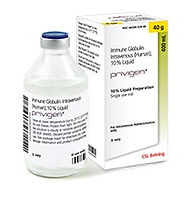Intravenous immunoglobulin for women with reproductive failure
Due to complications that often arise from in-home infusion and subsequent nursing issues, and to improve patient outcome of signs or symptoms during infusion, Dr. Frid offers IVIg treatment in her office only under her supervision.
For a successful pregnancy, the maternal immune system must maintain a balance between defense against microorganisms and accommodation toward a fetus. Immune abnormalities have been reported as an etiology of RPL (Recurrent pregnancy loss), RIF (Repeated implantation failure), and other pregnancy complications. Cellular immune abnormalities have been reported in women experiencing reproductive failure, including increased natural killer (NK) cell levels, altered T helper (Th)1/Th2 cell ratios, altered Th17/regulatory T cell ratios, or NK cytotoxicity. In addition, the prevalence of antiphospholipid antibodies (APAs) was as high as 20% in women with RPL and 30% in women with RIF.
During the past 20 years there have been no reports of significant side effects in mothers or their babies for IVIG use prior to conception and during pregnancy.
Why is Ig used?
IVIG therapy is immunological treatment typically used by fertility patients who have recurrent pregnancy loss or multiple implantation failures from In Vitro Fertilization (IVF). It is a fairly advanced therapy and typically encountered after or alongside numerous other implantation enhancing therapies. IVIG therapy is thought to repress a woman’s immune system, which may be attacking the embryo or fetus, mistaking it for a foreign body.
Intravenous immunoglobulin (IVIG) is a sterile, highly purified immunoglobulin G (IgG) derived from large pools of human plasma. All units of human plasma used to prepare IVIG are provided by FDA approved blood establishments (Red Cross) and tested by FDA-licensed serological tests for infectious agents. Aside from screening for hepatitis, HIV and nucleic acid tests, significant viral reduction is achieved by a combination of processes including Cohn fractionation, pH 4 and solvent detergent treatments. The product is stable for 18 months at room temperature and 24 months in the refrigerator.
It is not clear exactly how IVIG works, but studies suggest that it may reduce the amount of natural killer (NK) cells in the body, and/or may absorb or block a woman’s antibodies, which are causing the body to attack the pregnancy.
Women who have tested positive for natural killer cells and have experienced multiple miscarriages or implantation failures may opt for the use of IVIG therapy to increase their chance of conceiving and carrying a pregnancy to term.
IVIG Treatment Overview
During a treatment session, IVIG is introduced to the body very slowly through an intravenous drip in the arm, possibly taking several hours. It is recommended that IVIG be administered prior to embryo transfer, and then additional times following a positive pregnancy test. The effects of IVIG have been inconsistent and remain very much controversial and experimental.
What Are the Possible Reaction / Side Effect?
Most people tolerate IVIg well but some patients have reactions to IVIG. Most reactions or problems occur during the infusion. Sometimes, patients may have a problem later on, within the first three days.
-
Signs or symptoms that may occur during the infusion and up to 3 days after include:
-
fever less than 101°F,
-
hives or rash,
-
mild headache,
-
nausea and/or vomiting,
-
muscle and joint pain, and
-
fatigue (more tired than usual).
-
-
There is a small chance that you will have a severe allergic reaction to IVIG. If that happens the IVIG is stopped. Medications to treat allergic reactions are given immediately.
To minimize and improve patient outcome of signs or symptoms of infusion, Dr. Frid offers IVIg treatment in her office only under her supervision.
What products do you use?
We use a number of products, but primarily we use Gamunex-C, Gammaked, Octagam, and Privigen.


